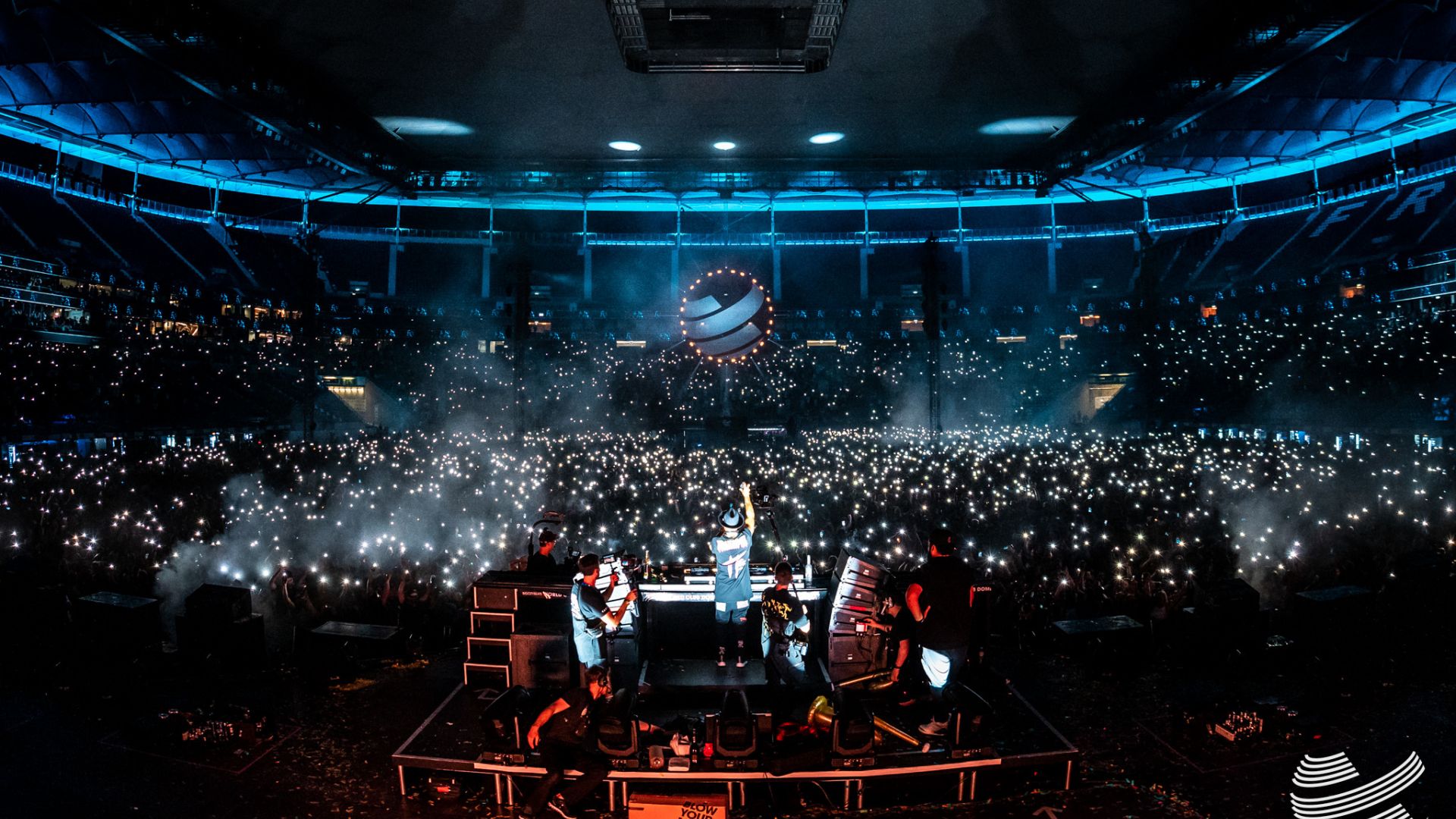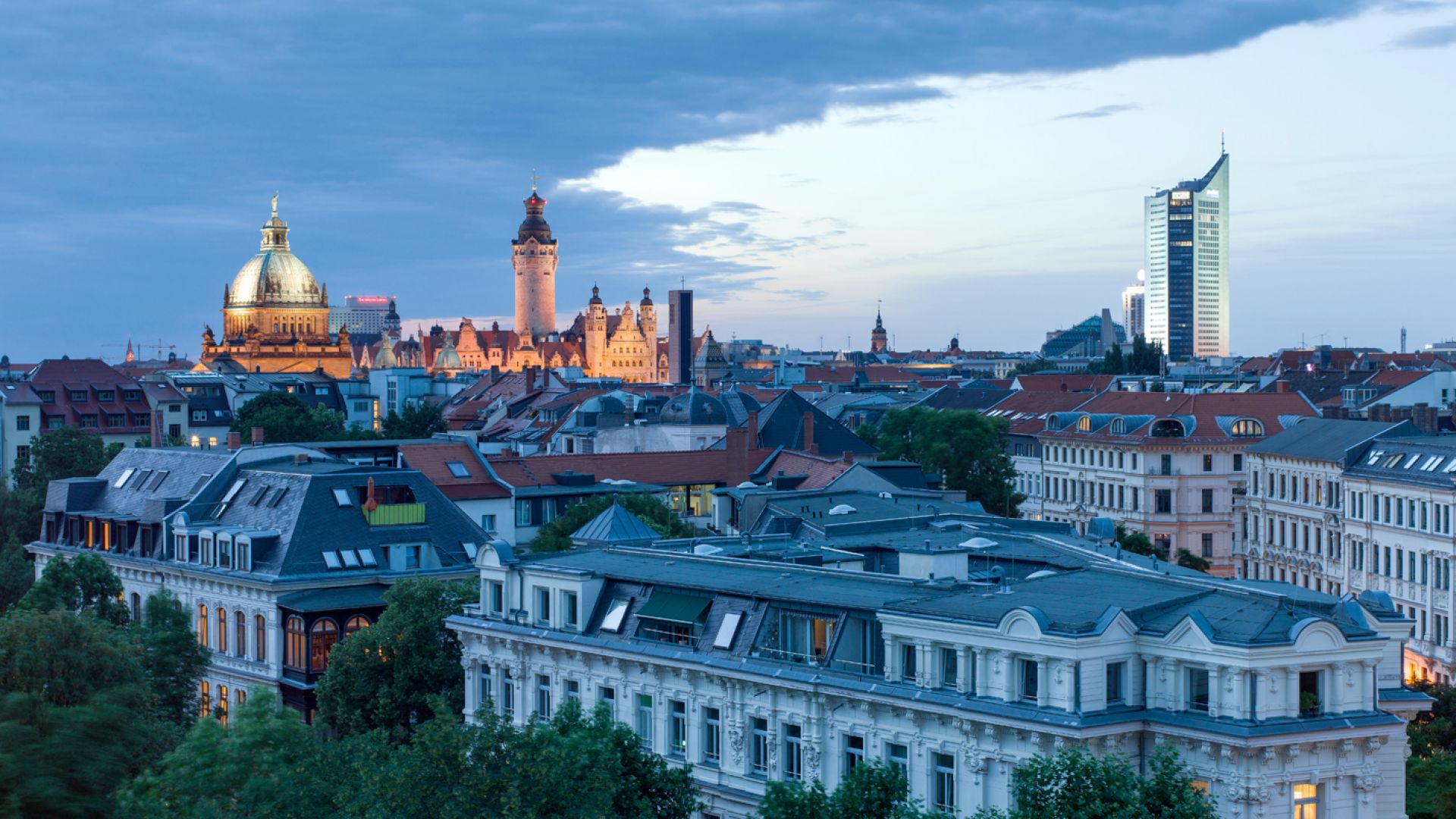Inspiring Germany
Techno – so much more than just electronic music
Upbeat and innovative rhythms, creative dance events and an open-minded, diverse community make the techno scene in Germany a real cultural experience. And the UNESCO Commission agrees: in 2024 it added technoculture to the national list of Intangible Cultural Heritage.
Germany dances to techno
 Nature One
©Nature One
Nature One
©Nature One
The most popular music genre in Germany isn't Schlager or German rap – it's techno! The fame of German DJs and sounds extends far beyond the country's borders – and beyond all conventions. Precisely this is why it's so appealing: everything is allowed, from hypnotic, pumping beats to experimental sounds and melodic elements. But techno is far more than just electronic music. It is an attitude to life that manifests itself in fashion, art and events, not to mention raves. Some of these music festivals are huge and go on for multiple days. In Weeze on the Lower Rhine, whose airport grounds are transformed into the fictitious city of Parookaville every summer, around 225,000 visitors move their bodies to the sounds and light shows of over 100 DJs. Other techno events are the SonneMondSterne Festival in Thuringia, the Sputnik Spring Break in Saxony-Anhalt and Nature One in Hunsrück. Techno is no longer only found in the big city.
Düsseldorf: where it all began
 Open Air Festival
©Adobe Stock (Zamrznuti tonovi)
Open Air Festival
©Adobe Stock (Zamrznuti tonovi)
The beginnings of techno have their roots in cities like Detroit, Chicago – and Düsseldorf. In the early 70s, Krautrockers and bands such as Kraftwerk – still global icons of the scene today – laid the foundations here for later techno creations. The music created with innovative synthesisers, drum machines and samplers spread around the world, but nowhere did the futuristic sound fall on such fertile ground as in Germany. A key trigger? The fall of the Berlin Wall in 1989. Techno became the soundtrack to the spirit of optimism after reunification. The motto: away with old patterns and on to a carefree life!
Berlin: dancing till you drop
 Berghain nightclub
©AdobeStock (Mathias Lochner)
Berghain nightclub
©AdobeStock (Mathias Lochner)
Nowhere was this more evident than in Berlin, where reunification brought a boost of energy and creativity to the techno scene. Cliques became renowned labels, abandoned buildings became improvised clubs and sometimes – for instance E-Werk, Tresor, Bunker and later Berghain – they became internationally famous techno strongholds. And a demonstration with three cars and a sound system became the Love Parade, celebrated by millions of participants from all over the world. In short: techno became mainstream in the 90s. After a few ups and downs, the scene is currently back on top. But what locals and tourists alike appreciate is not just the parties large and small, but also the tolerance and diversity the scene embodies, as well as a strong do-it-yourself mentality. Plenty of good reasons for UNESCO to recognise Berlin's techno culture as an intangible world heritage site.
Frankfurt am Main? Partying at the limit!
 World Club Dome
©Big City Beats GmbH;BigCityBeats GmbH (Julien Duval)
World Club Dome
©Big City Beats GmbH;BigCityBeats GmbH (Julien Duval)
Who would have thought that the first German techno club opened in 1984 not in Düsseldorf or Berlin, but at Frankfurt Airport – specifically, in the Dorian Gray club? Visitors to the Museum of Modern Electronic Music, or MOMEN for short, which opened at Frankfurt's Hauptwache in 2022, will be in the know, including when it comes to top techno producers such as Paul van Dyk, WestBam and DJ Hell. And even more so Sven Väth, the tireless local hero and super DJ. Anyone aspiring to similar careers can find inspiration at 'Workshops and seminars for the new generation', which are offered in the adjoining academy.
Everything in the party flow, from the Rhine to the White Elster
 Leipzig: Skyline at dusk
©LTM (Tom Schulze)
Leipzig: Skyline at dusk
©LTM (Tom Schulze)
Alongside Hamburg, Cologne and Munich, where Ultraschall, the country's first pure techno club, opened at the end of the 1980s, Leipzig has established itself as a particularly lively party centre. What began in the 90s, when the sound of a new sense of freedom boomed out of old wastelands, is still being cultivated today. East Germany's oldest techno club, the Distillery Club, is still a popular location that has now found a new home on the grounds of the Alte Messe.